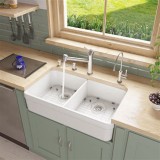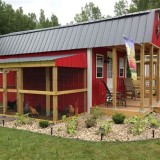Essential Aspects of Underfloor Heating: Is It Expensive to Run?
Underfloor heating systems offer an unparalleled level of comfort and warmth throughout the home, but concerns about running costs often arise. This article will delve into the essential aspects that influence the cost of running underfloor heating, enabling you to make an informed decision about whether it is the right choice for your home.
1. Energy Source
The type of energy source used for your underfloor heating system will significantly impact its running costs. Electric systems generally have higher running costs compared to gas or water-based systems. However, the availability and cost of these energy sources vary depending on region and individual circumstances.
2. System Efficiency
The efficiency of your underfloor heating system plays a crucial role in determining its running costs. Look for systems with high energy efficiency ratings, as they will require less energy to achieve the desired temperature.
3. Insulation
Proper insulation of the floor and surrounding areas is essential for maximizing the efficiency of underfloor heating. Inadequate insulation can result in heat loss and increased running costs.
4. Temperature Settings
The temperature settings you choose for your underfloor heating system will directly affect its running costs. Maintaining a comfortable temperature of around 20-22 degrees Celsius is generally recommended to optimize energy consumption.
5. Heating Zone Control
Underfloor heating systems with individual zone control allow you to adjust the temperature in different areas of your home. This feature can help reduce running costs by limiting heat to the areas that need it most.
6. Timed Controls
Timed controls enable you to schedule when your underfloor heating system is active. This can help reduce unnecessary heating during unoccupied hours, further lowering running costs.
7. Floor Covering
The type of floor covering used over the underfloor heating system can influence its efficiency. Materials with high thermal conductivity, such as ceramic tiles or stone, transfer heat more effectively, reducing running costs.
8. Size of the Heated Area
The larger the area heated by the underfloor heating system, the higher the running costs. Consider the size of the area that needs heating when making a decision.
9. Climate
The climate of your region will impact the running costs of underfloor heating. Colder climates require longer heating seasons, which can increase energy consumption.
10. Professional Installation
Ensure that your underfloor heating system is professionally installed to minimize inefficiencies and potential problems that could lead to higher running costs.
Conclusion
While the cost of running underfloor heating can vary depending on the factors discussed above, it is generally comparable to other heating systems. By carefully considering these aspects, you can choose an underfloor heating system that meets your needs and budget, providing you with a comfortable and energy-efficient home.

How Much Would Underfloor Heating Cost For Your Home Warmup

Underfloor Heating Costs Running Cost Calculator Warmup

Underfloor Heating Costs Running Cost Calculator Warmup

Underfloor Heating Costs To Operate Warmup Usa

Is Underfloor Heating Expensive To Run A Quick Guide

6 Pros Cons Of Underfloor Heating Warmup Plc

Warmup Underfloor Heating Guide Victoriaplum Com

Is Electric Underfloor Heating Expensive To Run Warm Floor

Underfloor Heating Cost How Much Is The

Electric Underfloor Heating Vs Water Warmup








